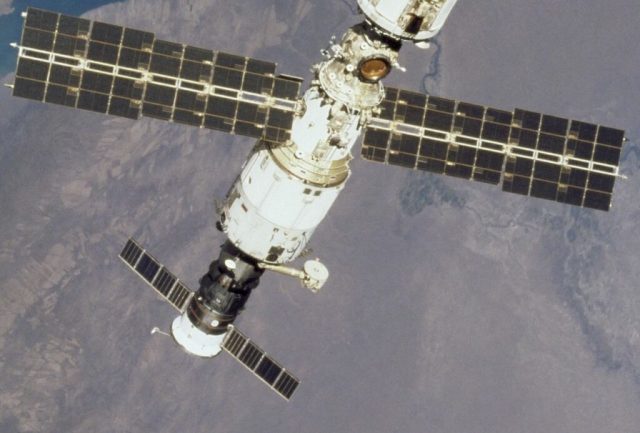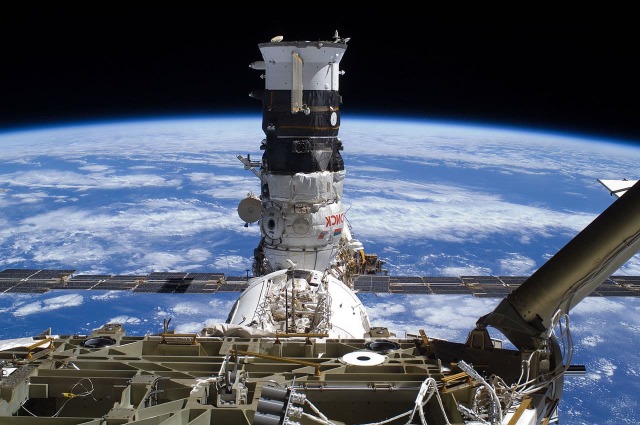Russian experts drew attention to possible technical difficulties associated with the Search module of the International Space Station. Earlier, NASA hinted at the isolation of the Russian Zvezda module.
New technical difficulties may have been discovered on the Russian segment of the ISS. Experts drew attention to the "strange dust" flying out of the exit hatch of the Search module.
"Anton, have you noticed any dust flying out of the hatch there?" a ground specialist asked Anton Shkaplerov. The cosmonaut said that he really sees something similar.
Shkaplerov and Pyotr Dubrov went into outer space today, at 15:24 Moscow time. Their task was to install handrails-transitions between the modules "Science" and "Berth". Handrails are designed to facilitate work in the future.
Recall that NASA recently announced that the Russian Zvezda module could be permanently isolated. The reason is an air leak. This is still no more than one of the possible scenarios: the National Aeronautics and Space Administration does not have the authority to make such decisions.

Service module "Zvezda"
Image source: wikipedia
The future of the ISS has raised questions until recently, but now, as far as can be judged, it is in the past. At the end of the year, NASA chief Bill Nelson said that the Biden administration and Harris want to extend work on the station until 2030.
A similar statement was recently made at the European Space Agency. According to ESA Director General Joseph Aschbacher, the Europeans hope to continue the work of the ISS until the end of the decade.
Russia's position on this issue can be interpreted as ambiguous. On the one hand, the country does not issue ultimatums to partners and does not talk about the imminent abandonment of the ISS. On the other hand, she made it clear that she could withdraw from the program from 2025.
Among the reasons for this decision was the general condition of the Russian segment of the station, which leaves much to be desired. Obviously, there are also disagreements of a purely political nature: in any case, the station used to be called "American" in Russia.
Anyway, Moscow is determined to create its own OS. The project is known as ROSS, or the National Orbital Space Station.

